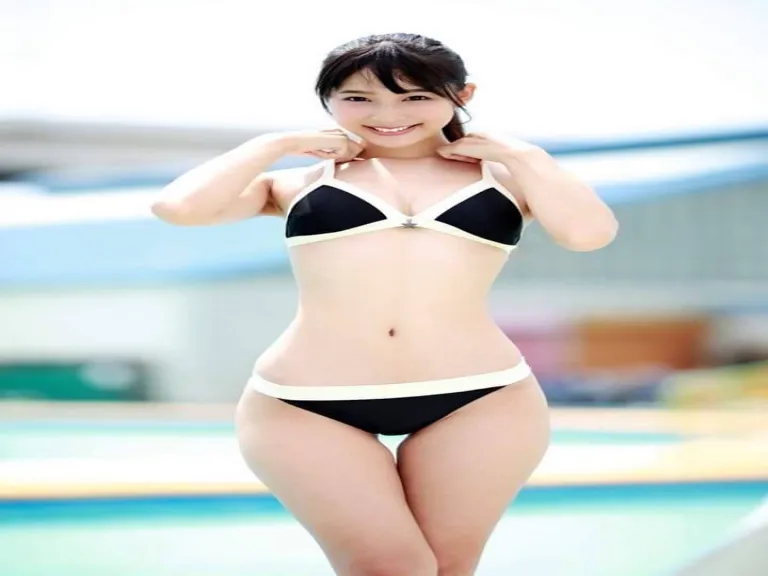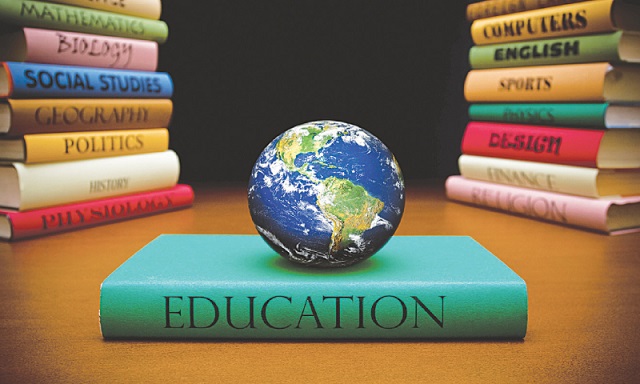
When I was a kid, I was ugly. Not in the cute but wears glasses way. Actually, really ugly. I had a huge overbite, top teeth that stuck out, a scrawny and ungraceful body, and frizzy, thin hair.
People let it be known, too, and although I suppose it hurt sometimes, mostly it didn’t. Beauty wasn’t something I internalized as important until I was a teenager. I didn’t realize that beauty was special — that you can never compare people on beauty, that “everyone is beautiful,” and that there are a million sociopolitical aspects to the concept of looking good. You have to be taught that beauty matters and my parents didn’t teach me that.
While I knew that I wasn’t pretty, it didn’t affect anything. My sister was beautiful and good at art and bad at math. I was good at math and played the piano well and was ugly. Nothing about beauty was special. And god, I miss those days.
One summer, when I was thirteen, it all changed. I read an article like this one about how beautiful women are much more likely to get senior positions, be paid more, and make more friends. As a Silicon Valley overachiever, I panicked. What was this nonsense? Did I have to actually care about my looks to succeed? Apparently.
So I began a ten-year journey to Look Better. I finally let my parents take me to an orthodontist. I would end up having braces twice and then Invisalign — having work done from high school through law school. I cut my hair, found out it was curly, and ten years later have still barely figured out what to do with it. I worked on my skincare, clothes, jewelry, and makeup. Each year I got a little prettier.
Then one day, a random stranger walked up to me and told me, “Damn, you’re hot.” And I thought, “Great, one thing down.” But of course, beauty is never something you can stop working on. Once you’re obsessed, you’re obsessed. Your skin can always be clearer, your hair more voluminous, and your gait more graceful. Eyebrows need plucking and nails need painting. It never ends.
By the time I hit my twenties, I was widely considered to be beautiful. Or at least pretty. I had an hourglass figure, glossy curls, and straight teeth. I learned to wear sunscreen (most of the time, anyway) and find clothes that fit. I learned to flirt and walk in heels. I received a larger than average number of guys and girls propositioning me and got regularly asked if I was a model — or if I would become one. Some things that changed weren’t me but society. During my childhood, natural hair, large hips, and dark skin were non-starters. Now they’re considered hot.
And here are ten things in particular that I noticed changed from night to day with my body:
I got more jobs.
This one is a sad but true fact of the attractive. We get more advantages in the hiring process. It might also be that it started to become less okay to discriminate on the basis of race and gender, but somehow I doubt it. I’ve almost always been the only woman of color on my team. I’ve never been the only “pretty person.” A friend of mine once described a requirement of being working at a law firm was “looking like a model.” And honestly, it’s kind of true.
I was treated better by boys/men.
Once I became pretty, guys suddenly stopped punching me, pulling my hair, and insulting me all the time. I was still bullied, but more subtly. Guys would often spend tons of time talking to me, being nice to me, and vying for attention. Suddenly, they did care what I had to say — or at least pretended to.
I became way more popular.
Related to the last point, people started actually making friends with me. Once, a random female teacher at UC Berkeley saw me sitting in a hall and did a double-take, plus a “Wow, you’re really beautiful.” Then it started happening all the time — often in more creepy ways. But I didn’t realize it was inappropriate. I just thought it was cool. And throughout undergrad and law school, things like that continued happening.
People were nicer to me.
When I was a kid, I was often told that people liked my sister more because she was nicer, friendlier, and more empathetic, while I was “rough.” (It’s not untrue; I was an Indian girl with a voice.) But now that we’re both adults and much wiser, I realize it’s mostly that she was extremely beautiful and I was extremely ugly. She had wide eyes, large lashes, perfect features, and thick, glossy waves. While my hard-earned beauty has never come close to her natural one (at least in my opinion — she kindly disagrees), as I got prettier, I also started magically getting better treatment.
Gone were the days when people only wanted to hang out with her, teach her things, or play games with her. Now people gave me smiles, kindness, and free stuff too.
I got away with more of an attitude.
Like I said, I’m a girl with a voice. If you’re good-looking enough, people will laugh it off even if you make them uncomfortable. Even if they ignore you, they won’t insult you because they think your confidence adds to your hotness, the challenge of getting you to fall for them, or whatever else is going on in their heads. When I was ugly, it was just undesirable.
People catcalled and harassed me more.
To this day, if I’m wearing baggy clothes and glasses, I never get catcalled. If I wear figure-hugging clothes and makeup, it’s hard to walk two blocks in D.C. without all sorts of unwanted attention (at least back when I was still wandering D.C. pre-pandemic). It’s not just if I wear more revealing clothes — as long as I have my hair nice and am wearing stylish things, it’s enough.
I got more attention from professors and senior leaders.
Turns out it’s not just the men hanging around street corners who noticed my years-long makeover, though. Once I got pretty, professors were much more likely to notice me, spend longer with me in office hours, and want to get to know me. (Yes, this is sketchy.) Men and women would comment on my clothes, hair, jewelry, and body. I’ve had several people who didn’t raise other red flags tell me I should be a model, a TV newscaster, or a lobbyist because of my figure. And apparently, attractive women also make better grades.
I made key industry contacts I’d never have made otherwise.
When I came to D.C., the #MeToo movement hadn’t happened yet. But even since then, Capitol Hill and the elite literati have stayed full of people who think a pretty girl on their arm — or at a private meeting with them — is a huge asset. As a minority woman with no connections, being beautiful was my single biggest ticket into the club. I got invited by grabby men to secret parties with the city’s top-notch journalists, members of Congress, and senior government officials. Several moderately famous people asked me to get lunch or dinner with them, and I did (though I always had my mom wait nearby and track my phone location). I networked my way into my first job through one particularly lecherous old man.
Eventually, I realized the harassment and assault was not cool and stopped going to those events or started calling people out. Now, I never get invited and it’s back to being impossible to crack the Old White Men Club.
I became a token to nerds.
When I was an ugly girl, people believed that I was in astronomy and particle physics. People believed that I read comic books and played board games. Once I became pretty, everyone assumed I was dragged to nerd things by a boyfriend, just trying to fit in, or being cute. I win the vast majority of board games I play with my friend circle, but every time a new person comes in, they underestimate me. Sometimes I feed into their mansplaining while my friends shout at this person that I always win and not to believe me, and then I get to win the game by blindsiding them. Hey, all’s fair.
I stopped dressing up for me.
I used to love dozens of colored bangles and brightly colored earrings I matched with my (ugly) outfits everyday. It probably looked garish and awful. But I liked it. Once I made beauty a chore, I stopped wearing jewelry because it wasn’t necessary and it was one more thing to worry about in the morning. The few ways I liked dressing up had now become awful to me.
Today, I hate keeping up with being beautiful. It’s so annoying to wake up early on Sundays to wear face packs so I don’t get acne scars. I’m sick and tired of pushup bras. Mascara sucks.
In fact, one of my favorite parts of the pandemic has been that I don’t have to care about all that superficial rubbish as much as I did a year ago. While there used to be a lot of in-person criticism, Zoom covers most flaws. As a government attorney, I heard a lot of “Really, you’re wearing that?” and “You look really nice when you wear eyeliner.” But now, I almost never wear makeup. I keep forgetting to wear my sunscreen and retainers. I don’t buy new clothes. I don’t shave my legs.
Because at the end of the day, beauty really is so random. So fake. So dumb to obsess over. It truly is as I saw it when I was six: a hobby just like everything else. Some people are pretty. Some people are good at ice skating. Some people are good singers. And some people are not. It’s not supposed to be complicated.
Yet today, I’d never be called ugly because it’s “unwoke.” Because it’s so important to say that every woman is beautiful. Because beauty now lives in a league all on its own.
While I knew that I wasn’t pretty, it didn’t affect anything. My sister was beautiful and good at art and bad at math. I was good at math and played the piano well and was ugly. Nothing about beauty was special. And god, I miss those days.
One summer, when I was thirteen, it all changed. I read an article like this one about how beautiful women are much more likely to get senior positions, be paid more, and make more friends. As a Silicon Valley overachiever, I panicked. What was this nonsense? Did I have to actually care about my looks to succeed? Apparently.
So I began a ten-year journey to Look Better. I finally let my parents take me to an orthodontist. I would end up having braces twice and then Invisalign — having work done from high school through law school. I cut my hair, found out it was curly, and ten years later have still barely figured out what to do with it. I worked on my skincare, clothes, jewelry, and makeup. Each year I got a little prettier.
Then one day, a random stranger walked up to me and told me, “Damn, you’re hot.” And I thought, “Great, one thing down.” But of course, beauty is never something you can stop working on. Once you’re obsessed, you’re obsessed. Your skin can always be clearer, your hair more voluminous, and your gait more graceful. Eyebrows need plucking and nails need painting. It never ends.
By the time I hit my twenties, I was widely considered to be beautiful. Or at least pretty. I had an hourglass figure, glossy curls, and straight teeth. I learned to wear sunscreen (most of the time, anyway) and find clothes that fit. I learned to flirt and walk in heels. I received a larger than average number of guys and girls propositioning me and got regularly asked if I was a model — or if I would become one. Some things that changed weren’t me but society. During my childhood, natural hair, large hips, and dark skin were non-starters. Now they’re considered hot.
And here are ten things in particular that I noticed changed from night to day with my body:
I got more jobs.
This one is a sad but true fact of the attractive. We get more advantages in the hiring process. It might also be that it started to become less okay to discriminate on the basis of race and gender, but somehow I doubt it. I’ve almost always been the only woman of color on my team. I&r

- PMI has communicated the detailed changes to the new exam to all Registered Education Providers (R.E.P.s). It is their responsibility to ensure that the content
.jpg)
- In todays world, there are a lot of people who looks towards the mainstream media to inform them about what is taking place in the world.

- the derailment, Garzon received a call on his work phone, apparently receiving instructions on the way to Ferrol from a Renfe staff member, the court

- Frequently you have got to easily stroll away for merely a moment or two. At times the fret or force using the moment is simply also a good deal and